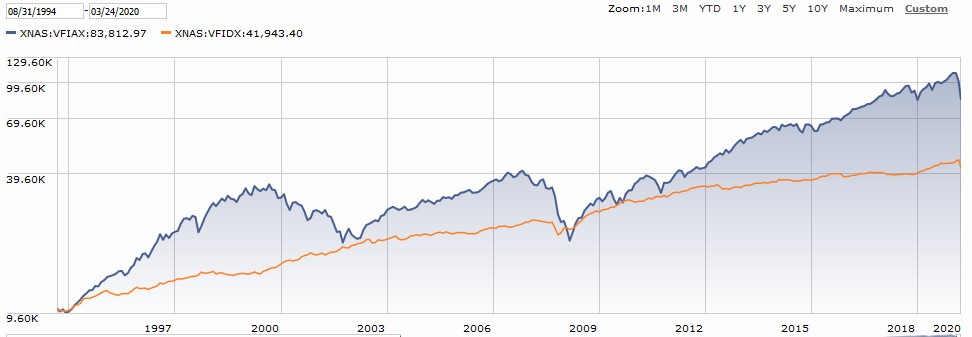I don't buy equities but in general whether you buy stocks or bonds, broad diversification does not work. There are many sectors that are not suitable for investing:
1- Energy (oil and gas) should be avoided - I have been stating this for years
2- Retail - department stores/mails were overbuilt and will continue to be in decline
Costco, Walmart, Amazon, and other E-commerce platforms will dominate this space.
I would avoid this sector as margins are too low in this sector
3- Hotels were already in trouble before this pandemic with competition from AirBNB and VRBO, that won't change.
4- Restaurants - Avoid this sector don't even look at it. Eighty percent of restaurants go out of business within 2 years of opening and that's when time are good. These are businesses that live paycheck to paycheck.
5- Airlines - this sector is not for investors. Airlines live paycheck to paycheck and historically have wiped out investors.
6 - MLPs - Stay far away. These were products set up by Wall Street to scam investors into believing you would earn a great income stream and you would own part of the energy infrastructure. The reality is that even infrastructure requires maintenance and capital investments.
7 REITs - Most have been terrible investments except for perhaps rental apartments. However due to a lack of any real transparency, I would stay away.
8- Mining - Just say no to this sector
9- Industrial stocks - Low margins, high capital, high debt industries - what can be worse?
In my opinion, you should invest in companies that have strong liquidity in sectors that that have a future:
1- Technology (semi-conductors, storage, broadband, communications equipment, video, imaging). The demand will continue as long as there are humans on this planet.
2- Financials - They make their money from scamming investors - that won't change any time soon (buy these 3 months before the economy starts to recover)
3- Pharma/Biotech - This sector will continue to grow slowly. Buy the blue chip companies when they have been beaten down.
4- Healthcare - this sector will continue to grow and the focus will be on medical suppliers, imaging, and lab testing.
Real Estate/Rental properties are good investments if the location is right and you don't mind managing them. No financial adviser will tell you that as there is no incentive for them to do so. But in reality, they can create tremendous wealth.
If you don't understand the investment product you are buying, just buy CDs. CDs have outperformed many sectors in the market over the past 30 years and have kept your capital safe and compounding during market downturns.

